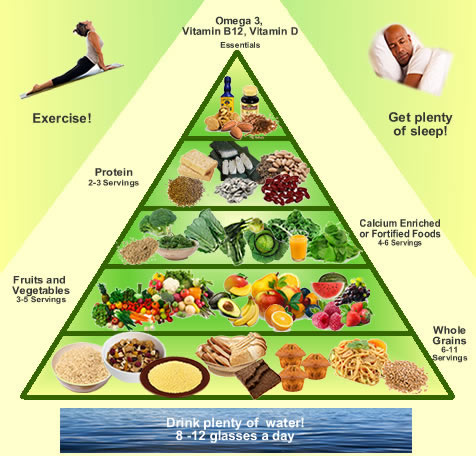Tell us something we don’t already know.. veganism is just plain healthier. Not to mention more environmentally friendly, kinder, and karmically where its at!
Farm Sanctuary and The Lewis and Clark Animal Law Clinic has submitted comments to the United States Department of Agriculture (USDA) and the Department of Health and Human Services (HHS) regarding a newly issued report on the dietary guidelines for Americans. The report, produced by an advisory committee to the USDA and HHS, urges Americans to modify their diets to become more plant-based. The report was borne of a meeting when the Dietary Guidelines Advisory Committee, a group of thirteen independent experts in the fields of nutrition and health, concluded that nutrition and dietary science had changed substantially since 2005, when the last set of dietary guidelines for Americans was published. The committee completed a study of new science and, based on that work, issued the Report of Dietary Guidelines Committee on the Dietary Guidelines for Americans, 2010. The report was then opened to public comment, which Farm Sanctuary acted upon.
“Our comments attempt to augment the committee’s suggestion of a shift toward a plant-based diet,” said Dr. Allan Kornberg, executive director of Farm Sanctuary. “Americans should be supplied with a list of healthy alternatives to animal-based foods. As a practicing pediatrician for many years, I know the transition to a plant-based diet would become more conceivable and easily accomplished for the majority of Americans if our Dietary Guidelines reflected healthy options and alternatives to meat, dairy and eggs.”
The Vegan Food Pyramid:
Paradigm Shift: Within the submitted comments, Farm Sanctuary applauds the Dietary Guidelines Committee for advising that Americans move towards a more plant-based diet, but believes that the final draft of the Dietary Guidelines should include ways to facilitate the recommended shift in dietary habits by suggesting specific plant-based alternatives for Americans to eat. Not only would a list of specific alternatives assist many Americans in making the suggested dietary modifications, but it would also make the guidelines applicable to those for whom meat, dairy, eggs, and poultry are objectionable for a variety of reasons.
Answer to the Age-Old Question “Where do you get your protein?” Specific suggestions Farm Sanctuary would like to see taken into consideration for the final draft of the dietary guidelines include an emphasis on plant-based sources of protein, such as lentils, nuts and tofu, as well as non-dairy options for calcium. The group would also like to see a listing of specific “solid fats” to be avoided, most of which are or contain animal products, and a related listing of accepted substitutions for those fats, including unsalted nuts, soy products and vegetable-based oils.
Evidence-Based Review: The final suggestion that Farm Sanctuary makes to the Dietary Guidelines Committee is that it would be valuable to undertake an Evidence-Based Review addressing the benefits of a low-fat vegan diet in the treatment and prevention of chronic diseases. Already, many influential groups, such as the American Dietetic Association (A.D.A.) and the Mayo Clinic have noted the benefits of vegetarian and vegan diets and it would be extraordinarily worthwhile to do an empirical study addressing the role plant-based diets play in disease prevention and control.
“Many vegetarians and vegans already know the health benefits of their diet but by requesting an Evidence-Based Review of the impact of plant-based diets in preventing and treating chronic illness, we will further prove that plant-based diets are best not only for the animals, but for the people’s health as well,” continued Kornberg. “Past studies have already linked vegetarian and vegan diets to the prevention of Type 2 Diabetes, heart disease, cancer, and obesity. We hope the Dietary Guidelines Committee will consider the suggestions we have made when writing the final draft of the 2010 Dietary Guidelines.”
Farm Sanctuary is the nation’s leading farm animal protection organization. Since incorporating in 1986, Farm Sanctuary has worked to expose and stop cruel practices of the “food animal” industry through research and investigations, legal and institutional reforms, public awareness projects, youth education, and direct rescue and refuge efforts. Farm Sanctuary shelters in Watkins Glen, N.Y., and Orland, Calif., provide lifelong care for hundreds of rescued animals, who have become ambassadors for farm animals everywhere by educating visitors about the realities of factory farming. Additional information can be found at farmsanctuary.org


